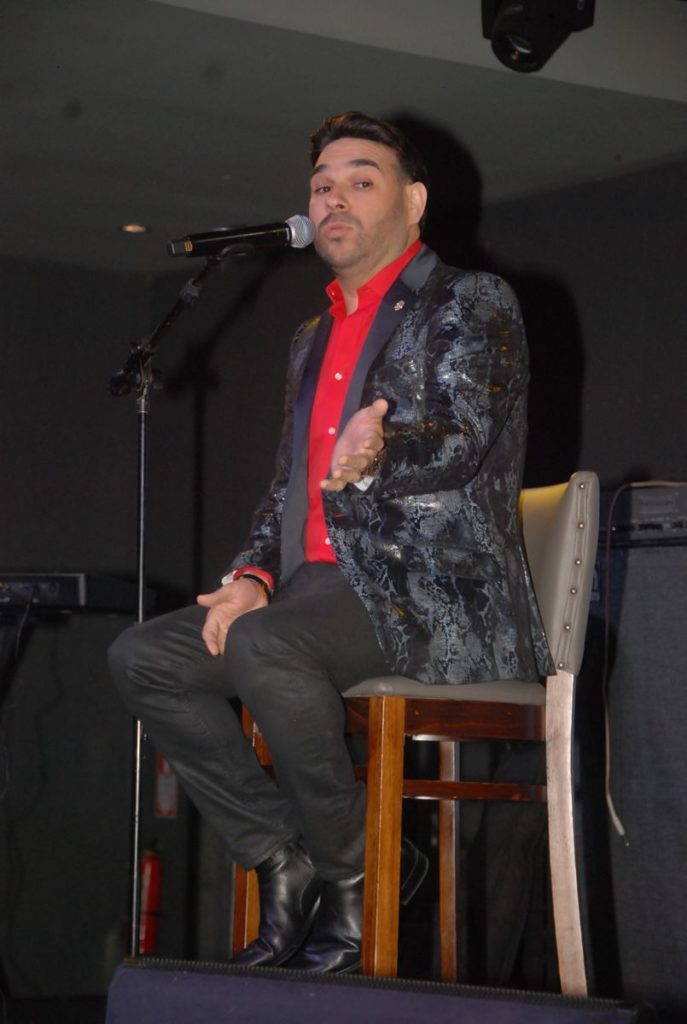
It is the album number 18 in the career of the successful artist of the bitter genre.

El Chaval de la Bachata (The kid of bachata) returns to the discographic world with the album “Mil historias” (A thousand stories), considered by the popular bitter music singer as one of his best musical productions.
The album that was put on sale on all digital music platforms is the 18th in the successful 22-year career of the performer of the super hit “Dónde están esos amigos”.
During a meeting with representatives of the country’s media that took place on Tuesday October 15 at Hard Rock Café Santo Domingo, in Blue Mall, El Chaval said that “this album was created with the purpose of going back to the bachata of the 90s, but with a touch of modernity. Hence the name: “Mil historias”.
Linar Espinal, the artist’s true name, underlined that in the album, which is released under the production of 829 Music Mundial, there are several inspirations, of love, heartbreak and many more and he talked about the creation process : “the process was a bit complex, since each musical track was meticulously chosen for different tastes. I hope it will please all my followers and those who join after listening to the songs that make it up“.

An album with 13 stories
The 13 stories that make up the album are: “Me sacaste del llavero” (Linar Espinal), “La próxima cita” (Linar Espinal), “No renunciaré” (Linar Espinal and Wilson Espinal), “Te puedes quedar” (César David Castro), “Segundo Plato” (Linar Espinal and Deyvi Antonio Rodríguez), “El último golpe” (Miguel de la Cruz Ortiz), “Anda ve con él” (Linar Espinal), “Qué malo” (Linar Espinal and Wilson Espinal), “Pasión morbosa” (Linar Espinal and Wilson Espinal), “No creo nada” (Linar Espinal and Juan de los Santos “Krisspy”), “Aún estoy vivo” (Linar Espinal and Wilson Espinal), “Dile a él” (Linar Espinal and Wilson Espinal) and “No me olvides” (Joan Eduardo Gomez).
The artist of the genre of bitterness, whose song “Canalla” together with Romeo Santos, is played on the national radio, in the United States and Europe, “maintained a consistency in the artistic community by performing at the most important events both in the country and abroad”, said Nelson López, manager of El Chaval de la Bachata.
The bachatero took his music to European stages and the Caribbean islands, such as St Martin, Martinique, Aruba, Curaçao, as well as in Central America.
The performer of hits such as “Dónde están esos amigos” and “Perdidos” expressed gratitude for the support he received for more than two decades from his followers, speakers, DJ and the press in general.




